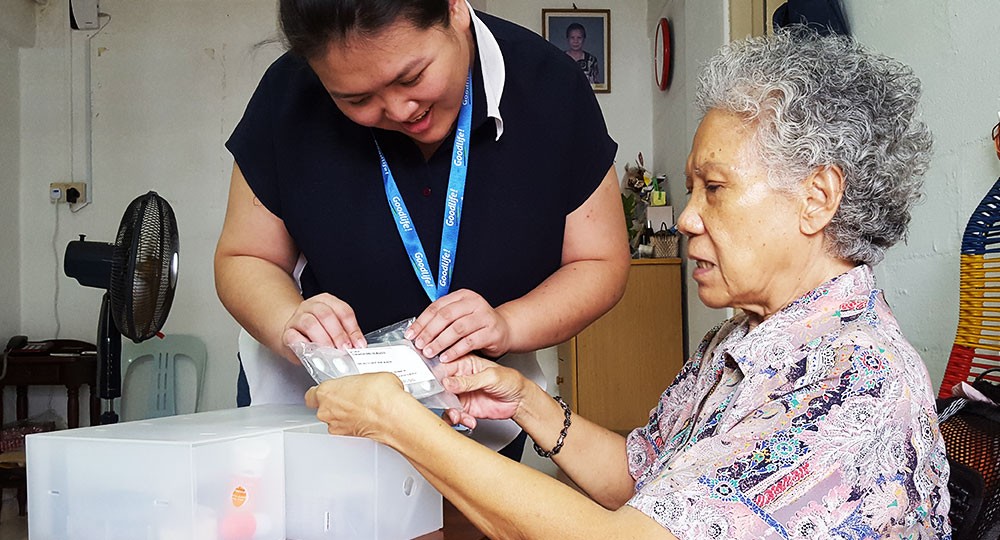
LIVING alone worries Madam Choy Sip Fan. The 77-year-old has multiple health conditions and, when she falls ill, there is no one to look after her. “Who will know if I don’t open the door?” she asked.
This is why she is grateful to GoodLife!, a Voluntary Welfare Organisation (VWO) that organises programmes and services for senior citizens. It has been working with Madam Choy for seven years and she is grateful. “It’s good that they care for me and check on me,” she said.
GoodLife!’s Centre Director Desmurn Lim said his organisation looks at how to help seniors like Madam Choy who have many health issues and live alone. “Our main concern is how we support seniors like her while allowing them to live independently,” he added.
In 2014, the VWO agreed to take part in a three-year pilot by the SMU-TCS iCity Lab to see how technology can help seniors age and live independently while helping community care volunteers and medical professionals better monitor and support them.
The SMU-TCS iCity Lab, a joint venture between the Singapore Management University and Tata Consultancy Services, focuses on research and development of intelligent and inclusive city solutions.
One part of the trial, which started in July 2015, involves monitoring the amount of medicines the seniors take, using a sensor in a medication box. About 10 seniors under GoodLife!’s care, including Madam Choy, were each given a medication box with sensors attached to it.
Associate Professor Tan Hwee Pink explained how the sensor works: It keeps track of how many times the box is opened and closed by Madam Choy who takes five pills, two for her chronic conditions and three health supplements. The raw data is sent wirelessly to SMU’s server where the research team plots the information into graphs for care coordinators to better understand Madam Choy’s medication patterns.
“While we can’t tell whether she has actually taken the right pill, we can tell with a certain level of confidence that she is consuming her medication at the appointed time. This is validated by the diary we asked her to keep of her daily activities including her pill-taking routine,” added A/Prof Tan, who is the Academic Director of the SMU-TCS iCity Lab and leads the SMU team.
The trial detected that four seniors needed help with their medicines. One of them was confused about the different dosages of his various medicines and ended up opening and closing the medication box many times. When they saw this pattern, GoodLife! took him to his doctor and he now is clearer about what medication to take at what time.
Said Mr Lim: “What the sensor and resulting data give us is the opportunity to have a conversation with seniors on why they are doing things in a certain way. From there, we can see how best to help them.”
Article published on: 26/1/2016